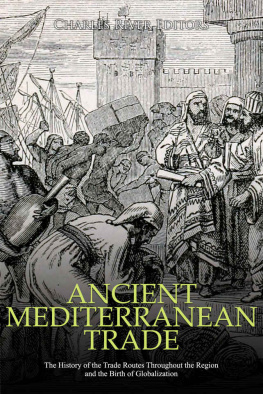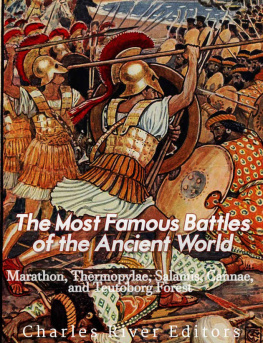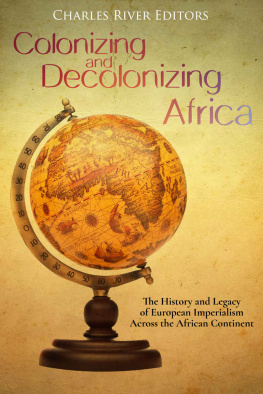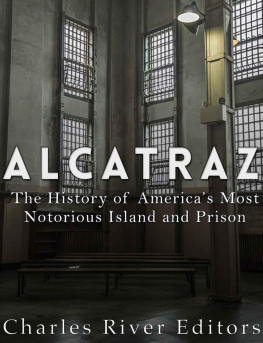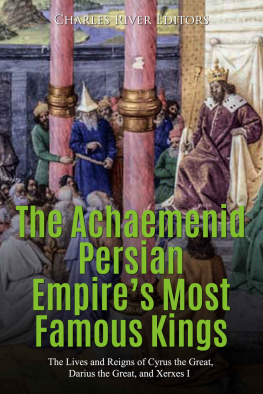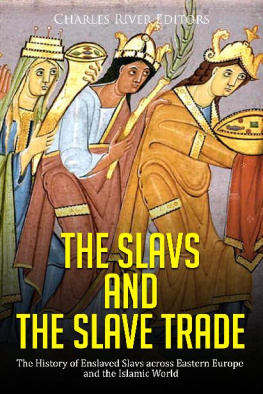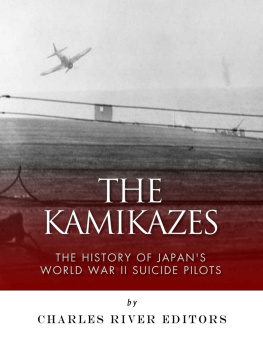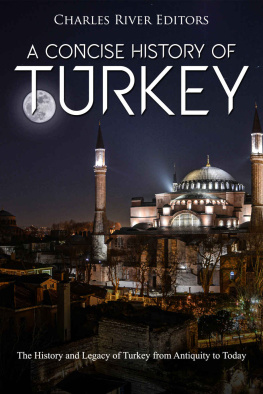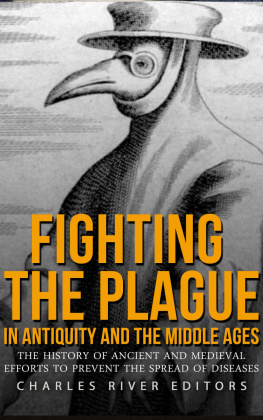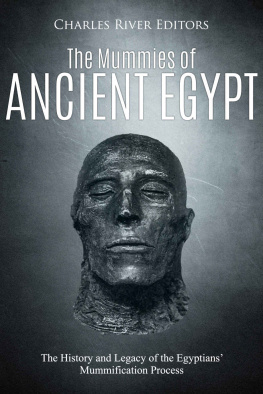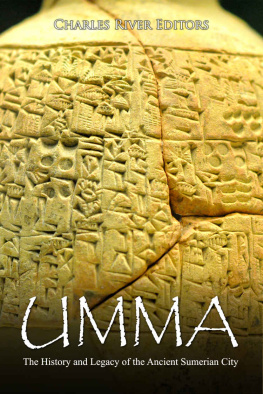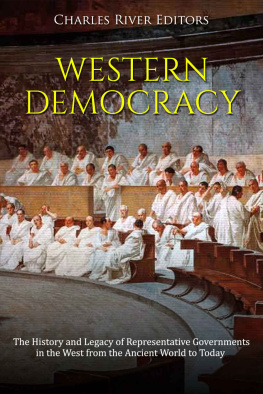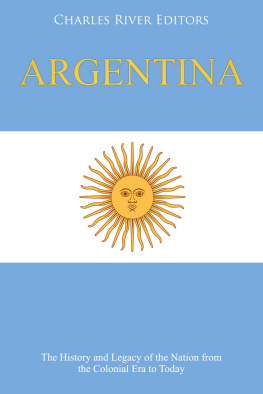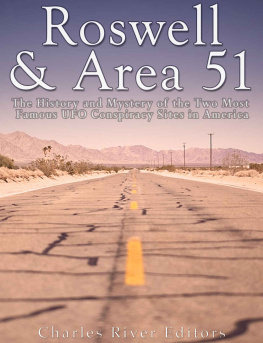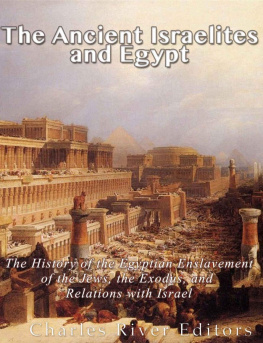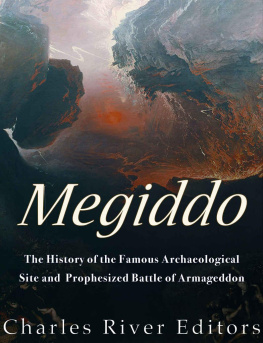Charles River Editors - Ancient Mediterranean Trade: The History of the Trade Routes Throughout the Region and the Birth of Globalization
Here you can read online Charles River Editors - Ancient Mediterranean Trade: The History of the Trade Routes Throughout the Region and the Birth of Globalization full text of the book (entire story) in english for free. Download pdf and epub, get meaning, cover and reviews about this ebook. year: 2020, publisher: Charles River Editors, genre: History. Description of the work, (preface) as well as reviews are available. Best literature library LitArk.com created for fans of good reading and offers a wide selection of genres:
Romance novel
Science fiction
Adventure
Detective
Science
History
Home and family
Prose
Art
Politics
Computer
Non-fiction
Religion
Business
Children
Humor
Choose a favorite category and find really read worthwhile books. Enjoy immersion in the world of imagination, feel the emotions of the characters or learn something new for yourself, make an fascinating discovery.
- Book:Ancient Mediterranean Trade: The History of the Trade Routes Throughout the Region and the Birth of Globalization
- Author:
- Publisher:Charles River Editors
- Genre:
- Year:2020
- Rating:4 / 5
- Favourites:Add to favourites
- Your mark:
- 80
- 1
- 2
- 3
- 4
- 5
Ancient Mediterranean Trade: The History of the Trade Routes Throughout the Region and the Birth of Globalization: summary, description and annotation
We offer to read an annotation, description, summary or preface (depends on what the author of the book "Ancient Mediterranean Trade: The History of the Trade Routes Throughout the Region and the Birth of Globalization" wrote himself). If you haven't found the necessary information about the book — write in the comments, we will try to find it.
Ancient Mediterranean Trade: The History of the Trade Routes Throughout the Region and the Birth of Globalization — read online for free the complete book (whole text) full work
Below is the text of the book, divided by pages. System saving the place of the last page read, allows you to conveniently read the book "Ancient Mediterranean Trade: The History of the Trade Routes Throughout the Region and the Birth of Globalization" online for free, without having to search again every time where you left off. Put a bookmark, and you can go to the page where you finished reading at any time.
Font size:
Interval:
Bookmark:
By Charles River Editors
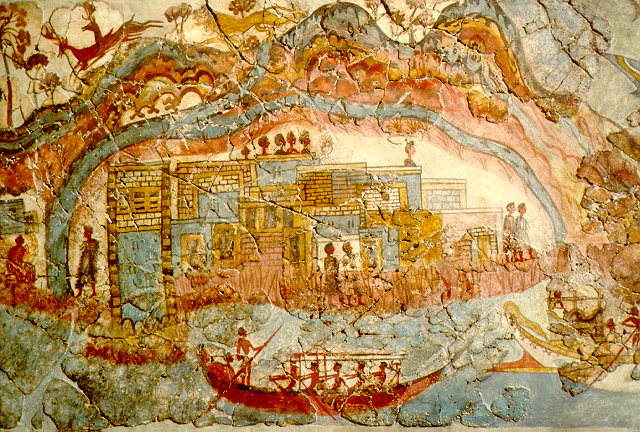
Detail of the Ship Procession fresco from Akrotiri, Santorini, c. 1600 BCE

Charles River Editors provides superior editing and original writing services across the digital publishing industry, with the expertise to create digital content for publishers across a vast range of subject matter. In addition to providing original digital content for third party publishers, we also republish civilizations greatest literary works, bringing them to new generations of readers via ebooks.
Sign up here to receive updates about free books as we publish them , and visit Our Kindle Author Page to browse todays free promotions and our most recently published Kindle titles.
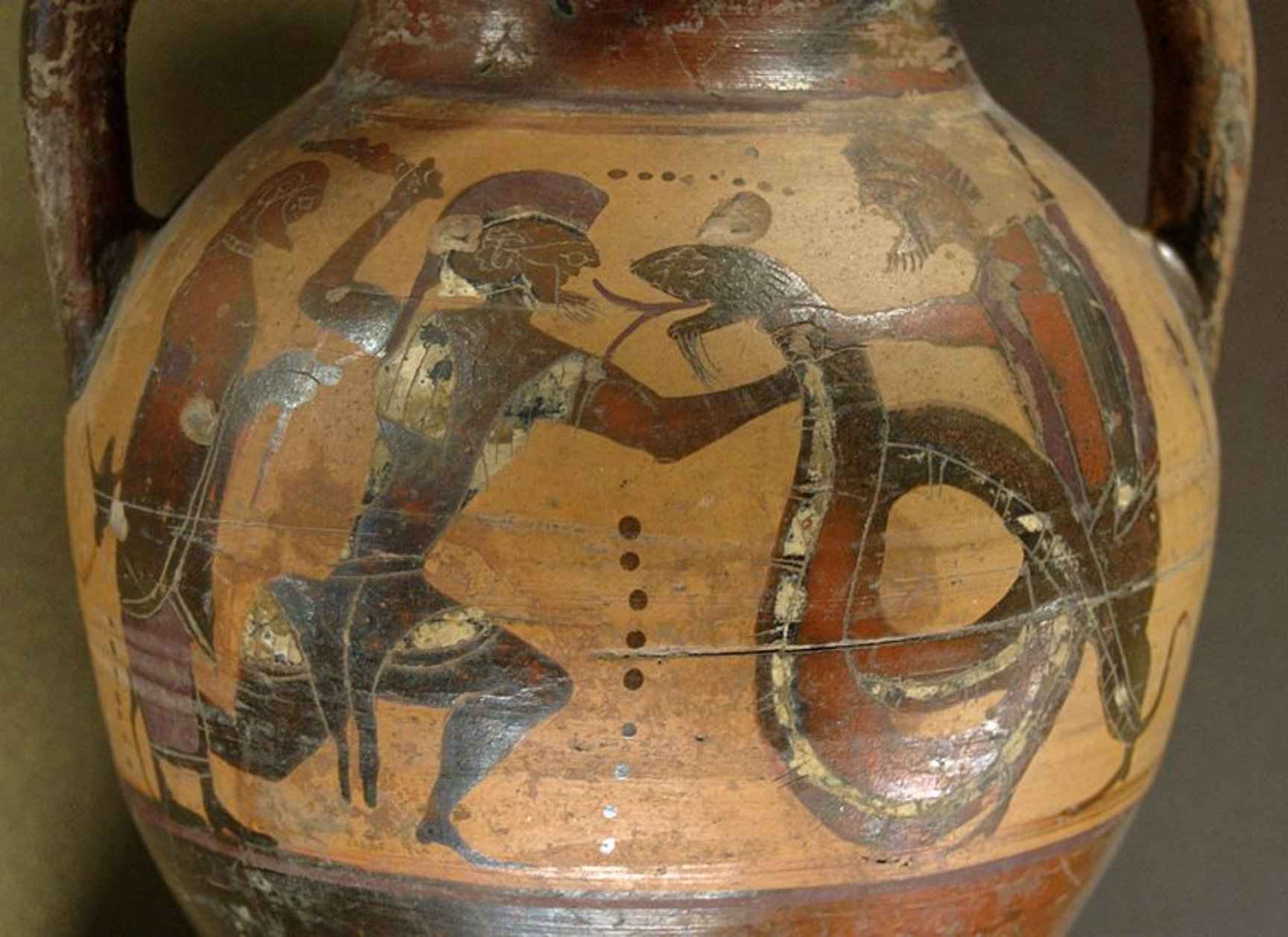
An ancient amphora
The concept of international trade was born in the ancient Mediterranean, which provided the perfect set of circumstances needed to produce an intricate trading system whose influence can still be seen in present-day economic practices. The ancient Mediterranean was home to a diverse range of cultures and landscapes, encompassing deserts, forests, islands and fertile plains. Different natural resources were available in different geographical areas, and with the advent of sailing ships around 3000 BCE, people were suddenly able to travel much further afield than ever before. This created an opportunity to trade local resources in international markets in exchange for exotic goods not available at home.
At the same time, this shift in Mediterranean trade from a local to international scale was a catalyst for immense social, political and economic changes that helped to shape the course of Western Civilization as a whole. Starting with the Egyptians and Minoans around 3000 BCE until the decline of the Roman Empire at the end of the 5 th century CE, ancient trade in the Mediterranean brought cultures into increasingly close contact with one another, and just as in the globalized world today, these cross-cultural influences came to shape the development of belief systems, languages, economics, politics, and art throughout wide expanses of land. Traders introduced foreign goods, but also foreign ideas and new methods of expression, and they in turn took new ideas home with them from the places they visited.
Sometimes these mutual exchanges make it difficult to determine whether a particular process or idea originated from the buyers or the sellers, and in some cases the meeting of disparate cultures produced entirely new ideas unique from anything that existed in either culture prior to their interaction with one another. At the same time, interactions with foreign peoples also brought about new ways of viewing ones own identity. Ancient cultures could now be more clearly defined in terms of their differences from other distinct cultures. This sense of distance between the self and the other helped form national and communal identities, made famous by the ancient Greek identification of non-Greeks as barbarians.
Over the centuries, the profits generated from trade helped establish wealthy nations and fuel economic development across the sea. By taxing imports and exports, governments could afford large infrastructure projects, like the construction of roads and harbors, which in turn helped to further increase trade and wealth. As a result, wars were fought for control of important trade routes and to maintain access to crucial commodities such as grain and precious metals. Economics became a primary consideration when establishing government policies and dealing with international relations. Some cities, most notably Rome and Athens, even built empires on the back of their mercantile success.
Although there are plenty of records, and despite its important role in the story of human civilizations development, it is difficult to obtain a complete historical picture of ancient Mediterranean trade. Part of this is due to the vast geographical area covered, which spans from Spain to Turkey and includes the movement of raw materials like timber and metals, finished products like wine and art, and even human beings sold in the slave trade, all across three continents. All stages in an economic system from the procurement of raw materials to the production, distribution and consumption of finished goods have to be taken into account.
Furthermore, the question of how or why trade developed in the way that it did, and what kind of cause-and-effect relationship existed between trade, wealth and technology, can become similar to that of the chicken and the egg. Did the rise of wealthy civilizations create the demand for increased trade, or did successful trading give birth to wealthy civilizations?
Finally, the evidence researchers have for tracing trade is usually incomplete and scattered. Scholars must rely on the archaeological finds that have survived from shipwrecks or excavated settlements, often fragmentary economic records, and snippets of information taken from literary accounts, many of which mention trade only in passing.
That said, even with these limitations, one thing is perfectly clear from the historical evidence: the Mediterranean played host to a highly active international trading industry that lasted over 3,000 years and became increasingly more sophisticated over time.
Ancient Mediterranean Trade: The History of the Trade Routes Throughout the Region and the Birth of Globalization examines how the systems formed and developed, the goods involved, and the impact it had on Europe, the Near East, and Africa. Along with pictures depicting important people, places, and events, you will learn about ancient Mediterranean trade like never before.
The earliest evidence of trade in the Mediterranean comes in the form of artifacts made from obsidian, a volcanic glass that was prized by prehistoric peoples as a raw material. By testing its physical properties, archaeologists can pinpoint the geographic area that a particular piece of obsidian came from, making it easy to trace the movement of this material from one location to another.
As far back as 12,000 years, obsidian from the island of Melos in the Aegean Sea was being transported to the Argolid on Greeces Peloponnesian peninsula. However, without additional evidence, it is impossible to know whether this obsidian was being sold or traded for other local commodities.
It wasnt until roughly 7,000 years later that researchers can trace the development of international trade taking place in the Mediterranean. The Bronze Age, which lasted from c. 30001500 BCE, takes its name from the metal alloy which had come to replace flint and stone during this period as the most sought-after raw material for creating tools and weapons. Copper and tin, the two metals needed for producing bronze, were valuable commodities that could be traded across the region, and some of the first trade routes were established between centers of copper and tin production and consumption. The demand for copper and tin drove merchants overseas in search of supply, and by the 2 nd millennium BCE, these metals were being imported to the Mediterranean from as far afield as the British Isles and the Middle East.
Font size:
Interval:
Bookmark:
Similar books «Ancient Mediterranean Trade: The History of the Trade Routes Throughout the Region and the Birth of Globalization»
Look at similar books to Ancient Mediterranean Trade: The History of the Trade Routes Throughout the Region and the Birth of Globalization. We have selected literature similar in name and meaning in the hope of providing readers with more options to find new, interesting, not yet read works.
Discussion, reviews of the book Ancient Mediterranean Trade: The History of the Trade Routes Throughout the Region and the Birth of Globalization and just readers' own opinions. Leave your comments, write what you think about the work, its meaning or the main characters. Specify what exactly you liked and what you didn't like, and why you think so.

